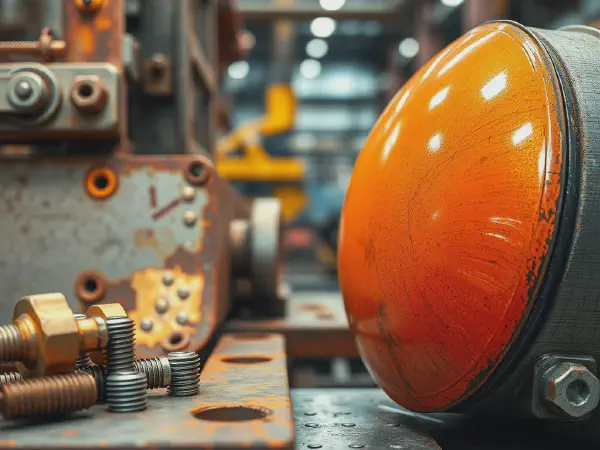Explore the Benefits of Anti-Corrosion Coatings in Industries

Comprehensive Guide to Anti-Corrosion Coatings
Anti-corrosion coatings are specialized protective layers applied to metal surfaces to prevent corrosion caused by environmental factors such as moisture, salt, and chemical exposure. These coatings play a vital role in maintaining the integrity and longevity of metal structures by creating a barrier that inhibits the electrochemical reactions responsible for corrosion. Understanding the importance and types of anti-corrosion coatings is essential for industries that rely on metal components, including manufacturing, construction, and automotive sectors.
The effectiveness of anti-corrosion coatings lies in their ability to provide a protective shield that prevents moisture and salts from coming into contact with the metal substrate. This shield significantly reduces the risk of rust formation, which can lead to structural failures, safety hazards, and costly repairs. Various types of anti-corrosion coatings are available, each designed to meet specific operational conditions and environmental challenges. As industries strive for greater durability and reliability in their materials, the demand for high-performance anti-corrosion coatings continues to grow.
Anti-corrosion coatings are applicable across multiple sectors, protecting assets from the detrimental effects of corrosion. In addition to industrial and automotive usages, these coatings find applications in marine environments, where exposure to saltwater accelerates corrosion rates. By utilizing advanced coating technologies and materials, manufacturers can ensure that their products withstand harsh conditions, ultimately extending the service life of various structures and components.
The application of Anti-corrosion coatings is essential for extending the lifespan of metal structures in harsh environments.
The selection of the appropriate anti-corrosion coating depends on several factors, including the type of substrate, the environmental conditions, and the intended use of the coated component. Industries are increasingly turning to advanced coatings that not only provide protection against corrosion but also offer additional benefits, such as enhanced aesthetics and ease of maintenance. By investing in high-quality anti-corrosion coatings, businesses can reduce downtime and maintenance costs while ensuring the durability and reliability of their equipment and structures.
As we navigate the challenges of a changing climate and increased industrial activity, the significance of anti-corrosion coatings cannot be overstated. By effectively managing corrosion through innovative coatings technology, industries can contribute to greater sustainability and environmental resilience. This article delves into the various types, applications, benefits, environmental impacts, and future trends of anti-corrosion coatings, providing a comprehensive understanding of their pivotal role in modern industry.
Types of Anti-Corrosion Coatings
Epoxy coatings are one of the most popular types of anti-corrosion coatings due to their excellent adhesion, chemical resistance, and durability. They form a hard and protective film that effectively safeguards metal surfaces from corrosion, making them ideal for industrial applications. Epoxy coatings are frequently used in manufacturing settings and on surfaces exposed to harsh chemicals and industrial processes, as they can endure extreme environmental conditions and provide long-lasting protection.
Polyurethane coatings are known for their flexibility and durability, making them an excellent choice for environments that experience temperature fluctuations and mechanical impacts. These coatings offer superior weather resistance and UV stability, ensuring that they maintain their protective qualities even in outdoor applications. The high-gloss finish of polyurethane coatings also enhances the aesthetic appearance of metal structures, making them popular in both industrial and architectural applications.
Zinc-rich primers contain a high percentage of zinc dust, providing cathodic protection to metal substrates. These primers act as a sacrificial anode, meaning they corrode preferentially to the metal they protect, effectively preventing rust formation. Zinc-rich primers are widely used in the industrial sector for steel structures, pipelines, and offshore platforms that are exposed to harsh environments, enhancing their longevity and reliability.
Thermal spray coatings are applied using specialized techniques to create a thick protective layer on metal surfaces, especially in high-temperature environments. These coatings utilize melted materials, often metal alloys, that are sprayed onto the substrate, forming a robust barrier against corrosion and wear. Thermal spray coatings are commonly used in aerospace, power generation, and heavy industrial applications, where superior protection is essential for operational efficiency.
Applications of Anti-Corrosion Coatings
Anti-corrosion coatings find extensive applications in various industrial sectors, including manufacturing, where they are applied to machinery, equipment, and storage tanks to ensure operational reliability. These coatings provide protection against moisture, chemicals, and abrasion, minimizing downtime and maintenance costs. Industries have recognized the critical role of corrosion prevention in enhancing productivity and longevity of metal components.
In marine applications, anti-corrosion coatings are essential for ships, offshore platforms, and marine infrastructure. The harsh marine environment, characterized by saltwater exposure, demands specialized coatings that can withstand corrosion while ensuring the safety and structural integrity of these assets. The use of anti-corrosion coatings in marine settings significantly reduces the risk of structural failure and extends the lifespan of vessels and platforms.
Automotive applications of anti-corrosion coatings play a crucial role in protecting vehicles from rust and corrosion. Coatings are applied to metal components, frames, and undercarriages to shield them from moisture, road salts, and environmental pollutants. By investing in effective anti-corrosion solutions, automotive manufacturers can enhance vehicle durability and minimize warranty claims related to corrosion damage.
In construction, anti-corrosion coatings are vital for buildings and infrastructure, safeguarding steel structures, bridges, and pipelines from environmental factors. These coatings provide a protective barrier that not only extends the lifespan of metal components but also ensures compliance with safety regulations. The application of anti-corrosion coatings in construction projects is crucial for maintaining the value and safety of real estate assets over time.
Benefits of Anti-Corrosion Coatings
One of the primary benefits of anti-corrosion coatings is the extended lifespan they provide to metal substrates. By preventing corrosion, these coatings help reduce the frequency of repairs and replacements, ultimately saving time and costs associated with maintenance. Extended durability translates into fewer disruptions in operations, allowing businesses to focus on their core activities without worrying about corrosion-related failures.
Cost-effectiveness is another significant benefit of anti-corrosion coatings. By investing in quality coatings, industries can prevent the costly consequences of corrosion, including equipment failure, safety hazards, and unplanned downtime. The initial investment in anti-corrosion coatings is often outweighed by the long-term savings achieved through reduced maintenance and extended asset lifetimes.
Enhanced aesthetic properties are also an advantage of anti-corrosion coatings. Many coatings not only protect metal surfaces but also provide a visually appealing finish. This is particularly important in applications where appearance matters, such as in automotive and architectural designs. High-quality finishes improve the overall look of the product, contributing to brand image and customer satisfaction.
Improved safety and reduced maintenance requirements are essential benefits of anti-corrosion coatings. By mitigating the risk of corrosion-related issues, companies can enhance workplace safety and reduce the likelihood of accidents caused by structural failures. Additionally, lower maintenance needs lead to reduced labor costs and greater operational efficiency, allowing organizations to allocate resources more effectively.
Environmental Impact of Anti-Corrosion Coatings
The emergence of sustainable coatings and eco-friendly options has become a significant trend in the development of anti-corrosion coatings. Manufacturers are increasingly focusing on formulating coatings that minimize environmental impact while maintaining high-performance standards. These coatings often utilize bio-based materials, low volatile organic compounds (VOCs), and recyclable components, contributing to a more sustainable future for the coatings industry.
Recycling and disposal of coated materials are critical environmental considerations. Proper recycling methods help ensure that coated materials do not contribute to environmental pollution. In many cases, used coatings can be effectively reclaimed and reused, reducing waste and conserving resources. Implementing recycling initiatives is essential for industries to align with environmental sustainability goals and regulatory requirements.
Regulations and standards for coatings are continually evolving to address environmental concerns and promote sustainability. The coatings industry is subject to various regulations aimed at reducing harmful emissions and promoting the use of safer materials. Compliance with these standards is essential for manufacturers, as they not only protect the environment but also enhance product credibility and marketability.
The impact of anti-corrosion coatings on reducing industrial pollution is another vital aspect of their environmental significance. By preventing corrosion, these coatings help to minimize the leakage of harmful substances and pollutants from structures and equipment, resulting in cleaner industrial processes. This contributes to overall environmental protection and supports industries in their efforts to reduce their ecological footprint.
Future Trends in Anti-Corrosion Coatings
Nanotechnology is poised to play a significant role in the future development of anti-corrosion coatings. By manipulating materials at the nanoscale, manufacturers can create coatings with enhanced properties, including superior adhesion, increased resistance to corrosion, and improved self-cleaning capabilities. These advancements may lead to even more effective and efficient protective coatings, revolutionizing corrosion prevention strategies in various industries.
Smart coatings with self-healing properties are an exciting trend in the anti-corrosion coatings sector. These innovative coatings contain microcapsules that release healing agents when damaged, allowing the coating to repair itself and maintain its protective qualities. This technology offers a promising solution for enhancing the longevity and performance of coated substrates, significantly reducing maintenance needs.
Trends in biobased coatings are gaining traction as industries seek renewable and environmentally friendly alternatives for anti-corrosion solutions. These coatings utilize natural and bio-derived materials, reducing reliance on petrochemical-based products. The development of biobased coatings aligns with sustainability goals and may open new avenues for eco-conscious manufacturers and consumers alike.
Innovations in application techniques are also shaping the future of anti-corrosion coatings. Advanced spray technologies, automated application methods, and improved curing processes are enhancing the efficiency and effectiveness of coating applications. These innovations contribute to reduced material waste and improved coating performance, enabling industries to achieve greater reliability and durability in their anti-corrosion solutions.
